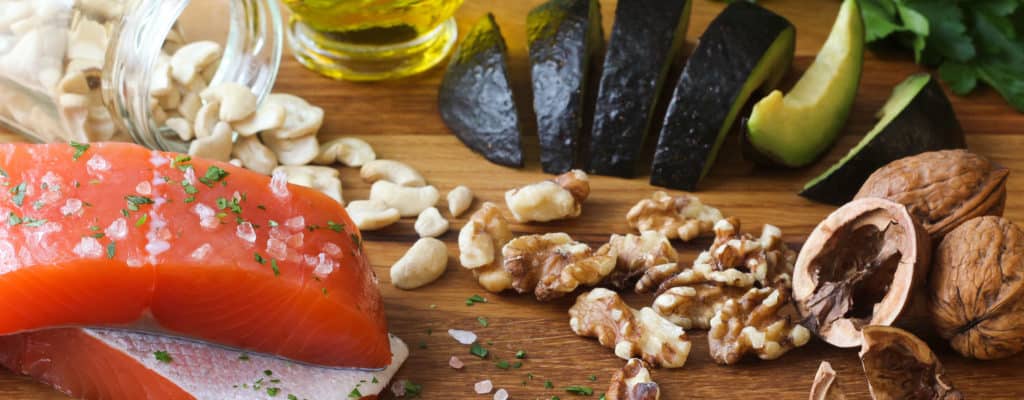
Not all fats are bad for health. Omega-3 fatty acids (a type of unsaturated fat) are recommended especially for pregnant women.
Fat is an essential part of a healthy diet. During pregnancy, you need to make sure that there are enough "good" fats in your diet and minimize the "bad" fats for the well-developed mother and fetus.
What role does fat play for pregnant women?
Certain fats (and their fatty acids) play a particularly important role during pregnancy thanks to their ability to support brain and eye development in babies before and after birth. Fat also helps the placenta and other tissues to develop. A few studies show that fats can help prevent preterm birth and low birth weight in babies.
What fats should you eat during pregnancy?
Each type of fat is made up of a combination of fatty acids. There are four types of fats in foods:
Monounsaturated fat
Polyunsaturated fats
Saturated fat
Trans fats.
Monounsaturated fats are found in olives, canola oil, peanut oil, as well as olives, avocados, nuts, and nut butters. They are considered "good" fats because they can lower cholesterol levels in the body.
Polyunsaturated fats are very beneficial. These fats contain omega-3 fatty acids , like DHA and ALA (both of which are important for your baby's healthy development), and omega-6 fatty acids. Omega-3 is found in some cold-water fish, flaxseed oil, walnuts, canola oil, and omega-6 is found in sunflower oil, cottonseed, corn, and soybeans. Soybean oil in many salads and processed foods is also high in omega-3s.
Fish is an excellent source of omega-3 fatty acids for pregnant women. Mothers are encouraged to eat about 0.3 kg of seafood per week. However, you need to limit fish that contain toxins like mercury. Choose seafood that is high in DHA and low in mercury, such as salmon, anchovies, sardines, and herring.
Saturated fats fall into the category of unhealthy fats. The right amount for your body is less than 10% of your total calorie intake. Saturated fat is found in high-fat meats, whole milk and 2% fat milk, tropical oils (like palm nuts and coconut), butter, and lard. Unlike unsaturated fats, saturated fat is usually solid at room temperature.
For trans fats, you should avoid them completely. These fats are typically solid at room temperature and are found in fried foods, some margarine. In addition, pregnant mothers can easily eat this type of fat in some packaged foods such as crackers, cookies, ... You should carefully read the nutrition label to find out the amount of saturated and trans fat in a product. On a side note, trans fats are only listed if they contain more than 0.5 grams.
A diet high in saturated and trans fats can increase cholesterol and the risk of cardiovascular disease. Research shows that saturated and hydrogenated fats have also been linked to other health problems, such as cancer and diabetes. Therefore, you should carefully select healthy foods for good health and prepare to welcome your baby!












